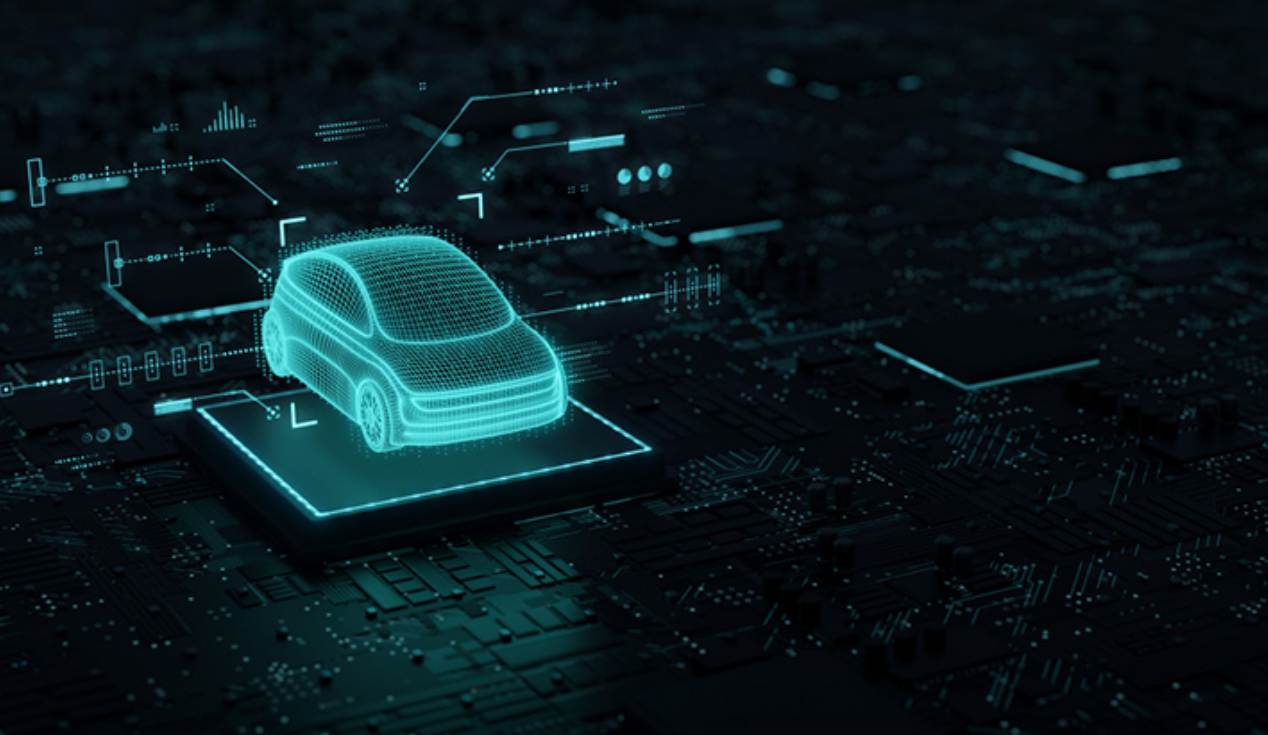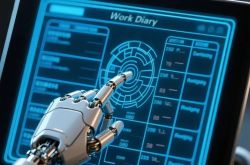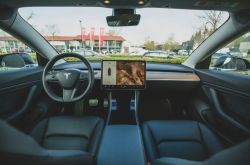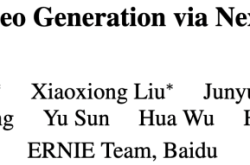Transforming Auto Industry: Foxconn's Ambitious Dream
![]() 12/31 2024
12/31 2024
![]() 577
577
Foxconn continues to aspire to become the next Tesla in the automotive world.
Recently, media reports indicated that Foxconn has been in talks with Nissan Motor Company, aiming to acquire a controlling stake in the Japanese automaker.
Citing an anonymous source, the report stated that Hon Hai Technology, Foxconn's parent company (hereinafter referred to as "Hon Hai"), has heavily invested in factories dedicated to electric vehicle (EV) production and is interested in acquiring Nissan as a whole, not just its factories and equipment.
The report noted that it is currently unclear whether Nissan has engaged in substantive discussions with Foxconn or has rejected its proposal. In response, a Nissan spokesperson declined to comment.
News of Foxconn's intention to "swallow" Nissan comes amidst the latter's announcement of entering merger negotiations with another Japanese automaker, Honda. Foxconn's interest in Nissan may have accelerated the process of the two Japanese companies merging.
As an electronics manufacturing giant, Foxconn has spared no effort to demonstrate its automotive manufacturing capabilities since venturing into the EV business. Judging from current progress, this factory renowned for assembling mobile smart devices has yet to replicate its success in the automotive field.
01
Foxconn's Grand Scheme
Although known primarily as a contract manufacturer, Foxconn has always harbored dreams of becoming an end-product manufacturer.
In 2005, Foxconn acquired Taiwan's Antai Electric Industry for NT$370 million, venturing into the manufacture of automotive electronic components such as battery cables and reverse sensors. Over the next decade, Foxconn entered the supply chains of automakers like Mercedes-Benz, BMW, and Tesla.
In 2014, Foxconn acquired Taiwanese battery manufacturer Lishen and invested NT$2.09 billion in Anhui Province to establish a battery pack production project. During the same period, Foxconn collaborated with Beijing Automotive Group to jointly develop a new generation of power batteries and their systems. In 2017, Foxconn invested NT$1 billion in Contemporary Amperex Technology Co. Limited (CATL) to collaborate in the field of solid-state batteries.
Foxconn has also invested in automotive chips. In 2021, it established a joint venture with Yageo, a Taiwanese electronics components company, to design automotive chips. In June 2022, Foxconn's sister company, Foxconn Industrial Internet Co., Ltd., acquired a controlling stake in four semiconductor assembly and test factories in China from ASE Technology Holding Co., Ltd. In early June 2023, Foxconn and automaker Stellantis established a chip company, SiliconAuto.
In the Chinese mainland market, Foxconn established the internet automaker "Harmony Auto" in 2015 in collaboration with Tencent Holdings. However, Foxconn has since encountered numerous obstacles on its path to new energy. Take "Harmony Auto" as an example; due to issues such as controlling stakes, Foxconn chose to withdraw its investment after just one year.
The collaboration with Yulon Motor accelerated Foxconn's automotive manufacturing process. In 2020, Foxconn established joint ventures with both Fiat Chrysler Automobiles (FCA) and Yulon Motor to design and produce electric vehicles.
A year later, Foxconn unveiled three electric vehicles developed in collaboration with Yulon: models C, E, and T, representing an SUV, sedan, and bus, respectively. The naming convention closely resembles that of Tesla. In October 2022, Foxconn introduced two more models: the SUV Model B and the pickup truck Model V.
In October of this year, Foxconn launched the MPV Model D and the electric bus Model U. In terms of models and quantity, Foxconn's product turnover rate has been faster than that of many mainland automakers over the past three years.
As the market for smart mobile devices reaches saturation, even with Apple's support, Foxconn is facing tougher times. Contract manufacturing for new energy vehicles has undoubtedly become a beacon of hope for Foxconn.
According to the latest report by market analysis firm Canalys, global smartphone shipments are expected to reach 1.22 billion units in 2024, an increase of 6% year-on-year. After a strong rebound this year, the smartphone market's growth will plateau starting next year, with the compound annual growth rate from 2024 to 2028 revised downward to 1%.
The decline in the smart mobile device market is evident in Foxconn's performance. In October of this year, Hon Hai's sales amounted to NT$804.9 billion, an increase of 8.6%. This was its slowest monthly sales growth since February. In November, Hon Hai's revenue was NT$672.6 billion, a decrease of 16.43% from the previous month and an increase of only 3.47% year-on-year.
The greater pressure lies in the increasing competition and cost pressures faced by Foxconn due to Apple's diversification of its supply chain and plans to shift its industrial chain. Taking new energy vehicles as a new breakthrough is indeed a reasonable choice.
02
What Nissan Offers
Foxconn and Nissan have a long history together.
In January 2023, Foxconn appointed Jun Seki, a former executive of Nissan and Nidec, as the Chief Strategy Officer of its electric vehicle division. At that time, Foxconn stated in an announcement that Seki would assist the group in integrating electric vehicle resources and development in the Americas, Asia, and the Middle East.
It is understood that Foxconn's long-term goal for Seki is to secure a 40% market share in the global electric vehicle market.
In 2023, due to unresolved disputes with Foxconn regarding previous investments, Lordstown Motors, a US electric vehicle startup in which Foxconn held a stake and was responsible for investment and production, filed for bankruptcy protection. After encountering setbacks in its US industrial chain layout, Foxconn began to shift its focus to Japan.
In September of this year, Foxconn announced that it would leverage the component technology of its subsidiary Sharp to independently develop pure electric vehicles. Eight years earlier, Foxconn had acquired two-thirds of Sharp, a Japanese electronics manufacturer, gaining the latter's production capabilities and intellectual property in the electronics field.
According to media reports, in its intention to acquire Nissan, Foxconn is not only interested in the latter's factories and equipment but also in its entire brand portfolio, including models such as the Terra, Sentra sedan series, and GTR supercar.
Overall, Foxconn seems to hope to directly acquire Nissan's production plants, supply chains, and technological patents in electric vehicle manufacturing by obtaining a controlling stake in the company. Simultaneously, it plans to utilize Nissan's brand and sales channels to sell electric vehicle products globally, including in Japan.
Currently, Nissan is facing pressure from declining performance and is accelerating its corporate restructuring.
In the first half of fiscal year 2024 (April-September 2024), Nissan's sales amounted to JPY 5.98 trillion, a year-on-year decrease of 1.3%; operating profit was JPY 32.91 billion, a year-on-year decrease of 90.2%; and net profit decreased by 93.5% to JPY 19.22 billion.
Based on its current sluggish performance, Nissan has revised its expectations for fiscal year 2024: sales revenue has been revised downward from JPY 14 trillion to JPY 12.7 trillion; operating profit has been revised downward from JPY 500 billion to JPY 150 billion; and the global sales target has been revised downward from 3.65 million units to 3.4 million units.
In addition, Nissan has announced plans to reduce its global production capacity by 20% and lay off 9,000 employees worldwide. Due to the debt crisis, Nissan's outlook has been downgraded to "negative" by some institutions.
Honda, which is seeking a merger with Nissan, has become quite nervous amidst Foxconn's aggressive pursuit. According to media reports, Seki plans to meet with Luca de Meo, CEO of Renault, the major shareholder of Nissan, in Paris, France. Honda has warned Nissan that "if Nissan collaborates with Hon Hai, our collaboration will be null and void."
03
Car Manufacturing: Not Just Another iPhone
Foxconn has always wanted to apply its mobile phone OEM model to the automotive field, serving leading companies like Tesla and becoming a giant in the automotive contract manufacturing industry.
In October 2022, Terry Gou, Chairman of Hon Hai Group, stated, "We used to make PCs and mobile phones, but now we are making EVs." At the same time, he also expressed that Foxconn's goal in automotive manufacturing is not to build its own brand but to attract collaboration with major automakers.
However, judging from Foxconn's intention to acquire a controlling stake in Nissan and its previous layout in the Japanese market, the company's vision for the electric vehicle business extends beyond being a mere contract manufacturing platform.
Regarding direct vehicle manufacturing, Foxconn founder Terry Gou previously believed it was not a difficult task. He once said, "An Apple car is just an iPhone on four wheels. If we can make iPhones, why can't we make electric vehicles?"
It must be acknowledged that Foxconn has always had significant cost and efficiency advantages in iPhone contract manufacturing, but this does not mean that the experience of electronics contract manufacturing can be directly replicated in the automotive manufacturing field, which has a longer supply chain, greater integration challenges, and longer payment terms.
Even in an era where automobiles are accelerating towards intelligence, there is a significant gap between automobile manufacturing and mobile phone contract manufacturing in terms of the industrial chain and business model.
So far, Foxconn seems to have only achieved the ability to "make cars" but not yet reached the stage of "making good cars."
Take Foxconn's Model C as an example. Positioned as a compact pure electric SUV, this model is relatively average in both appearance and interior design.
In the first quarter of this year, the mass-produced version of Foxconn's Model C was delivered in Taiwan under the name Luxgen N7. According to media reports, in the first eight months of this year, Tesla's Model Y ranked first with 5,724 electric vehicles registered in Taiwan, while Luxgen N7 ranked second with 5,115 registrations.
However, it must be noted that due to market and policy factors, competition in Taiwan's electric vehicle market is not sufficient, and many international automakers have taken a conservative stance. From a global perspective, the sales volume of Foxconn's multiple models has not yet formed a scale advantage.
In addition, Foxconn's previously highly anticipated Model B has a 0-100 km/h acceleration time of 6.6 seconds and a pure electric range of 450 km, which are average in terms of power and endurance and even lag behind current mainstream products. Furthermore, due to its similarity in design to the Volkswagen ID.3, Model B has also faced scrutiny from the outside world.
Moreover, due to the high degree of similarity in naming to Tesla's models, Foxconn was once publicly teased by Elon Musk, who said, "Cars are much more complex than phones. You can't just go to a supplier like Foxconn and ask them to make cars for you."
In the past, as a newcomer to the automotive field, Foxconn was more willing to collaborate with automakers as a contract manufacturer. However, this approach runs counter to the current trend of automakers striving for independent research and development and building their own factories. Moreover, Foxconn has not proven its ability to make good cars, which may also be the reason why it is seeking to acquire a controlling stake in Nissan.
Currently, Foxconn is still trying to demonstrate its automotive manufacturing capabilities.
At the beginning of this year, Foxconn established the wholly-owned subsidiary Foxconn New Energy Vehicle Industry Development (Henan) Co., Ltd. in Henan Province. In July, Foxconn signed a strategic cooperation agreement with the Henan Provincial Government to promote projects such as new energy vehicle manufacturing, energy storage battery production, digital healthcare, and robotics industrial bases.
In the first half of 2023, Foxconn boldly stated that by 2025, its automotive business revenue will reach $33 billion and account for 5% of the global electric vehicle market. From 2025 to 2027, it aims to capture 10% of China's 30 million vehicle production capacity.
However, amidst the current overcapacity in China's automotive industry, Foxconn still faces challenges in terms of automotive manufacturing qualifications, policies, and regulations.
Recently, Foxconn's tone has shifted somewhat. In October of this year, Seki stated in an interview that the company is cautiously advancing its electric vehicle business, believing that the business environment is highly uncertain, and moving too fast may lead to unforeseen consequences.

Some images are sourced from the internet. Please inform us for removal if there is any infringement.






